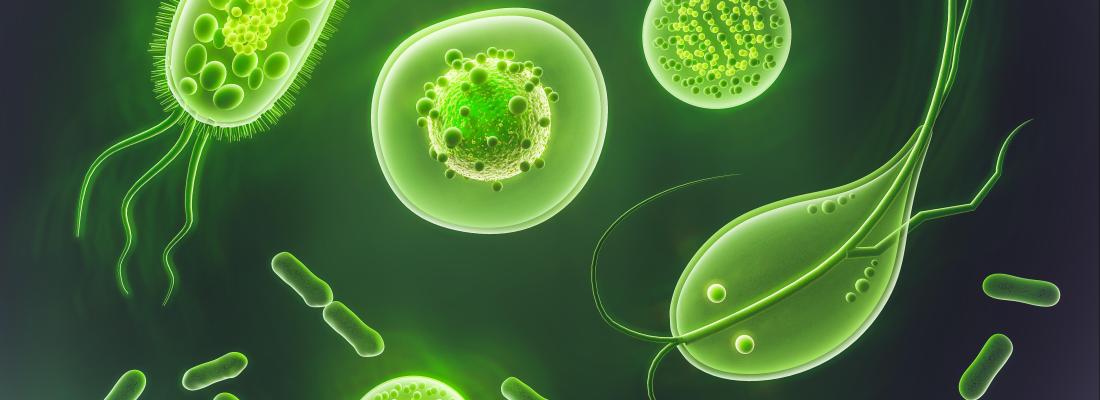Food, Global Health Reading time 2 min
A probiotic bacterial strain proven more effective for treating a common intestinal infection
Published on 27 March 2025

Giardiasis, caused by the protozoan Giardia intestinalis, is the leading cause of intestinal parasitic infections in humans and pets, in particular dogs. Some of the main symptoms are diarrhoea, abdominal pain, nausea and weight loss. Additionally, it can lead to post-infectious complications such as irritable bowel syndrome (IBS) and chronic fatigue. Given the parasite's growing resistance to conventional treatments (such as nitroimidazole), researchers are exploring the potential of the probiotic strain Lactobacillus johnsonii CNCM I-4884, patented by INRAE, MNHN and EnvA in 2015. This bacterium has significant anti-Giardia activity, preventing the parasite from developing in the intestine. Their aim is to develop a new bacterial strain more resistant to digestive processes, more effective against the parasite and more suitable for industrial production.
A new probiotic strain 15% more effective against giardiasis
L. johnsonii is a bacterium naturally present in the intestinal microbiota. To resist the bile produced by the liver, this bacterium transforms conjugated bile salts (which are essential for the growth of the G. intestinalis parasite) into unconjugated bile salts, toxic to the parasite. This transformation of bile salts is an integral part of the digestive process and even has an anti-inflammatory effect on the intestine. The researchers searched for improved resistance of L. johnsonii CNCM I-4884 to bile salts in the laboratory, primarily by exposing the bacterium to increasing concentrations of bile salts. After their screening process, they identified the most promising derivative strain with the highest bile salt transformation activity and best persistence during culture.
The research team tested the selected bacterial strain in a murine model infected with G. intestinalis, comparing the results with those obtained with the wild-type strain. The results show a 64.4% reduction in the parasite load in animals treated with this strain, compared to 48.8% for the wild-type strain. The derivative strain of L. johnsonii developed by the researchers is therefore 15% more effective against giardiasis. A probiotic drug based on L. johnsonii is in the final stages of clinical trials and should soon be available for dogs. The results of this study open up new avenues for the development of probiotic drugs to combat giardiasis in animals, as well as in humans, in the near future.
Reference
Boucard A.-S. et al. (2025). Isolation of derivatives from the food-grade probiotic Lactobacillus johnsonii CNCM I-4884 with enhanced anti-Giardia activity. Gut Microbes. DOI : https://www.tandfonline.com/doi/full/10.1080/19490976.2025.2474149#d1e559
